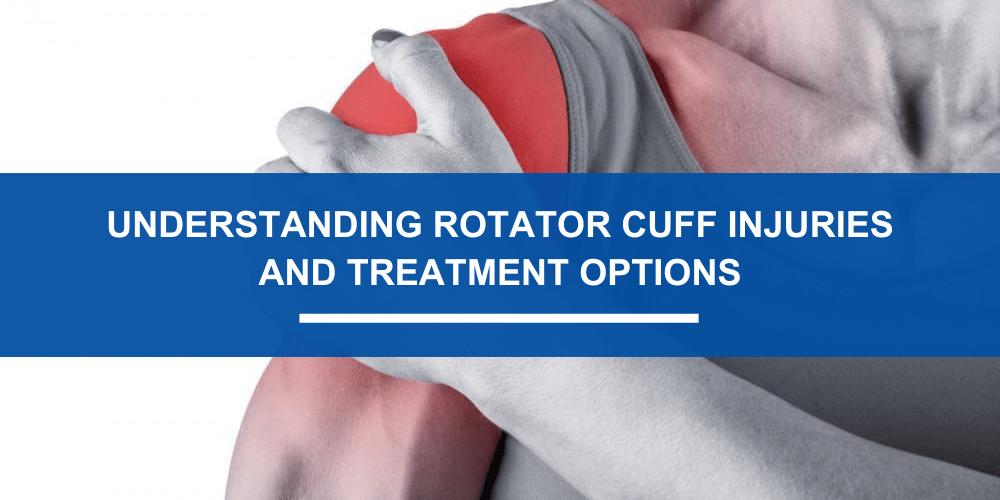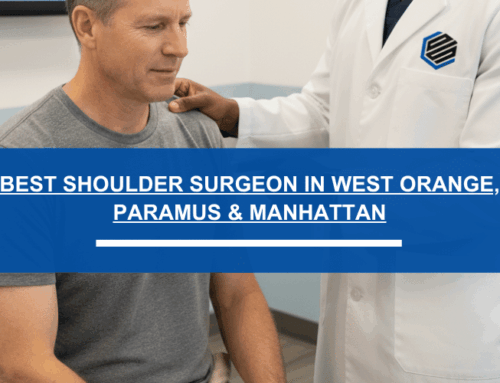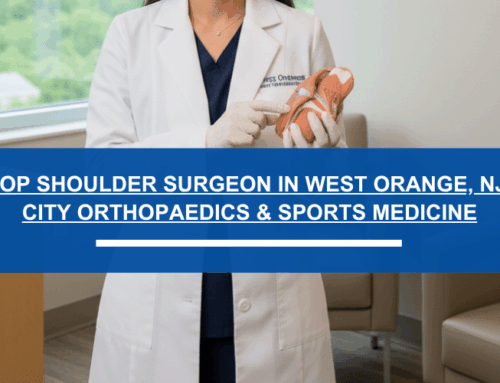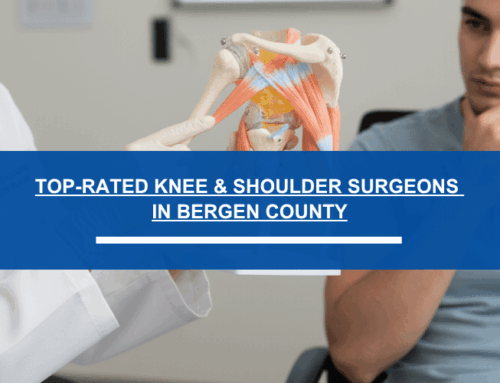The rotator cuff is a group of four muscles and tendons that stabilize the shoulder joint and facilitate arm movements. Injuries to this area are common, especially among individuals engaged in repetitive overhead activities such as painting, lifting, or certain sports like baseball and tennis.
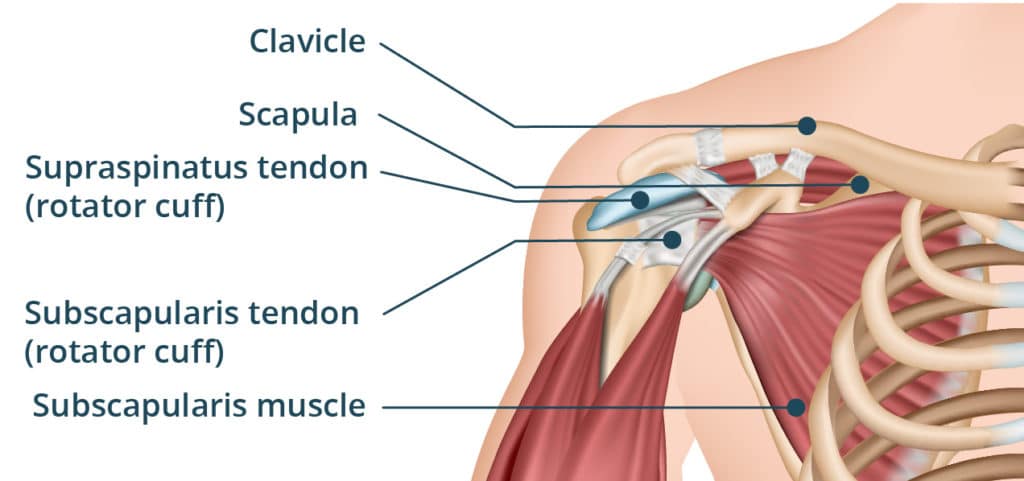
Causes of Rotator Cuff Injuries
Rotator cuff injuries can result from:
- Acute trauma: Sudden falls or lifting heavy objects improperly.
- Degenerative wear and tear: Age-related degeneration leading to tendon fraying.
- Repetitive stress: Continuous overhead motions in sports or occupations.
Symptoms to Watch For
Common symptoms include:
- Persistent shoulder pain, especially during overhead activities.
- Weakness in the shoulder, making it difficult to lift or rotate the arm.
- A clicking or popping sensation when moving the shoulder.
- Limited range of motion or stiffness.
Diagnosis
Diagnosis typically involves a physical examination to assess pain and range of motion. Imaging tests such as X-rays or MRI scans may be used to determine the extent of the injury.
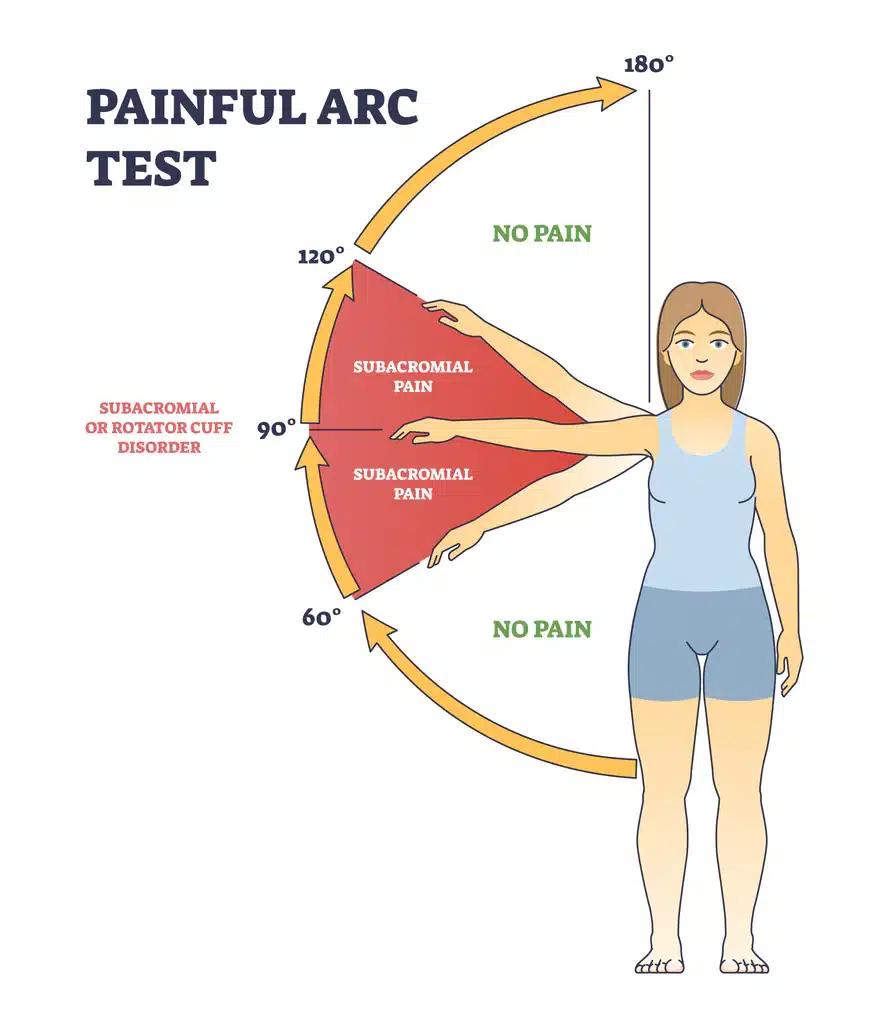
Treatment Options
Treatment depends on the severity of the injury:
Non-Surgical Treatments
- Rest and activity modification: Avoiding activities that exacerbate symptoms.
- Physical therapy: Exercises to strengthen shoulder muscles and improve flexibility.
- Medications: Nonsteroidal anti-inflammatory drugs (NSAIDs) to reduce pain and inflammation.
- Corticosteroid injections: To alleviate severe pain and inflammation.
Surgical Treatments
In cases where non-surgical methods are ineffective, surgical options may be considered, such as:
- Arthroscopic tendon repair: Minimally invasive surgery to reattach torn tendons.
- Open tendon repair: Traditional surgery for larger or more complex tears.
- Tendon transfer: Used when the torn tendon is too damaged to be repaired.
Rehabilitation and Recovery
Post-treatment rehabilitation is crucial for restoring shoulder function. This may include:
- Continued physical therapy to regain strength and flexibility.
- Gradual return to normal activities as advised by a healthcare professional.
- Regular follow-up appointments to monitor progress.
When to Seek Medical Attention
If you experience persistent shoulder pain, weakness, or limited mobility, it’s important to consult an orthopedic specialist. Early intervention can prevent further damage and improve recovery outcomes.
Frequently Asked Questions
What causes rotator cuff injuries?
Rotator cuff injuries can be caused by acute trauma, degenerative wear and tear due to aging, or repetitive overhead activities that strain the shoulder muscles and tendons.
What are the symptoms of a rotator cuff injury?
Symptoms include persistent shoulder pain, weakness, difficulty lifting or rotating the arm, and a clicking or popping sensation during movement.
Can rotator cuff injuries heal without surgery?
Many rotator cuff injuries, especially minor tears or inflammation, can heal with non-surgical treatments like rest, physical therapy, and medications. However, severe tears may require surgical intervention.
How long does recovery take after rotator cuff surgery?
Recovery time varies depending on the severity of the injury and the type of surgery performed. Generally, it can take several months of rehabilitation to regain full shoulder function.
Schedule a Consultation
Don’t let shoulder pain limit your daily activities. Schedule a consultation with our orthopedic specialists to explore treatment options tailored to your needs.



